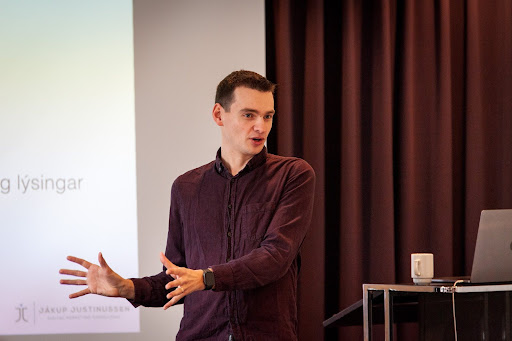
Small islands making excessive plans for missions
The Faroe Islands are far away from almost everywhere. Still, new and comprehensive plans are being made to mobilize numerous people from the islands for missions.
“Tithing is an established principle among followers of Jesus worldwide. I want to apply it to a new sector in our church work. My desire is to see 10 percent of our church members go to share Jesus around the world,” says Jakúp Brúsá.
A few years ago, the young Faroese started a digital marketing company in the capital, Torshavn. However, his life took a new turn when he recently signed up as the general secretary or CEO of the nation’s domestic mission – in the local language named “Kirkjuliga Heimamissiónin.” Even if the organization mainly focuses on domestic affairs, Brúsá assures that foreign missions and unreached people groups will be high on the agenda in the coming years. Sending professionals, businesspeople, and students as tentmakers will be the primary way of getting people going.
“We will also reach out to Faroese people already living and working abroad. It should be possible to mobilize many of them as ambassadors for God’s kingdom,” says the general secretary.
International experience
The Faroe archipelago is found 200 miles northwest of the UK. It has 18 main islands, 52,000 inhabitants, and zero unreached people groups. According to the Joshua Project, 90 percent of the population are Christians. The Faroese are famous for their professional and business skills. Bakkafrost, their leading seafood company, operates worldwide and has an annual revenue of over one billion USD.
Jakúp Brúsá believes the international experience is a definite plus as he and his team will work to mobilize their compatriots for missions.
“The Faroese are generally agile and adaptable. Most people have not heard about our nation, and very few speak our language. Thus, we are used to accustom ourselves as needed to fit in elsewhere.”
God and business
The general secretary envisioned serving God through his business before he started his digital marketing company a few years ago.
“It was crucial that this should be God’s business, not mine, and that the resources we would acquire should also be his. I aimed to serve God and other people through the company. After a while, I also thought about how to inspire others to do the same. I hope to do so in this new role I have taken on.”
The young leader likes to see tangible results from his work. He still knows that he must be patient when it comes to missions.
“Right now, we must focus on building up mobilizing, training, and sending capacity and getting the first people on their way. Within 5-10 years, I hope we have sent at least 30 people to work abroad. We need to find the “torch bearers” who can go first. Then, others will follow.”
Dual focus
Jakúp Brúsá knows some Christians on the Faroe Islands will be reluctant to the plans of mobilizing a high number of local believers for work abroad.
“There is always someone who focuses mainly on domestic needs, and thus, feels that we lose resources when good people leave the Faroes. But, even if we send 10 percent of our church members, nine of ten will remain at home. So we do not need to choose between domestic and foreign missions. We should be able to focus on both simultaneously.”
Family-orientation
He thinks the Faroes are specially prepared for and can be especially welcomed in many cultures worldwide, including Muslim ones.
“We have preserved a collective, family-oriented culture similar to the cultures we find in many non-western communities. These similarities can make it easier for others to relate to us and vice versa.”
The general secretary wants to focus on the unreached as he and his team mobilize for missions. Still, he believes some people will go elsewhere as job opportunities open.
“We are all called to bring the gospel to the ends of the earth. When we mobilize businesspeople and professionals, we must still be ready to follow them wherever they go. So, although we focus on the unreached, I do not think limiting our work to such people groups will be viable.”
Brúsá and his team have asked Tent International to help as his organization builds its training and sending capacities. One of the first aims is to get those involved in the organization behind the vision of sending tentmakers.
By Steinar Opheim